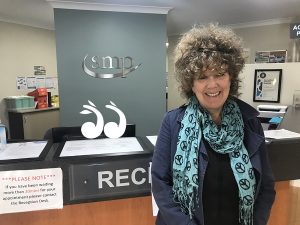Coronavirus: Some Questions Answered
By Sue Abbott
Waiting for covid-19 (the medical name of the illness caused by the coronavirus) is understandably making us feel a little anxious about what lies ahead. I think we are all starting to realise that it is a lot more serious than we initially appreciated.
There are things that can be put in place to minimise the transmission of covid-19 and the potential impact on our community, but we need to react quickly in order to stop the chains of transmission. In a nutshell the World Health Organisation (WHO) tells us “speed trumps perfection.”
If we can minimise transmission, we will save lives.
There is no ‘one size fits all’ approach and clearly by virtue of the fact that we are living in the bush we have quite a different set of concerns and approaches to our city counterparts.
Some questions we can answer at a local level include:
- What does ‘being quarantined at home’ mean for instance if you’ve just come back from the UK or Switzerland or Vietnam or if you have been in contact with someone who has the virus?
If you are quarantined it doesn’t mean you have tested positively to covid-19, it means you may have recently returned from a high risk country or you have been in contact with someone who has tested positive. In this case you confine yourself to your home for 14 days and providing you stay well, after that time you can then resume normal activities. If you become unwell in that period you will be tested, but even if the test is negative, you will still need to remain quarantined for the full 14 days.
Being in self-isolation means you have tested positive to covid-19. In these cases, strict infection control practices need to be implemented in your home. NSW Public Health provides detailed information to positive cases to ensure their families understand the infection control procedures they need to adopt.
- Where are we to go to be tested for covid-19 if we think we have the symptoms?
If you do have any symptoms you should first phone the healthdirect hotline for initial advice: 1800 022 222. They will assess if you need to be tested under the current criteria.
In Scone all testing is conducted at the Scott Memorial Hospital. PLEASE DO NOT present directly to the hospital, you must phone in advance: 02 6540 2100. This allows staff to prepare to test you, including putting on personal protective equipment (PPE) and ensuring you don’t come into contact with anyone else in the hospital.
DO NOT present to the Scone Medical Practice or any local pharmacy.
- What are the symptoms?
The symptoms may vary in severity. The World Health Organisation advice is the main symptoms are fever, dry cough and shortness of breath.
- If people are diagnosed with covid-19 where do they go for isolation?
If you have tested positive, but you are well, you can self-isolate in your home. NSW Public Health will provide detailed information on how your family can maintain infection control procedures in the home. If you are unwell and require hospitalisation then the hospital will arrange your care. Again, phone ahead to the hospital to allow them time to make arrangements, before you arrive. If you need to call an ambulance for any reason, please advise 000 that you have covid-19, so that the ambulance can also take infection control precautions – this is VERY important, as if local ambulance come in contact with a person with covid-19 and haven’t worn personal protective equipment (PPE) it will mean the crew will need to go into quarantine for 14 days, taking vital services from our community.
There are some simple personal health measures that we can do ourselves so it is important that we make sure we are all across the basics such as;
- Hand-washing with soap for at least 20 seconds;
- Not shaking hands with each other;
- Not sitting closer than a metre and a half next to someone else;
- Being familiar with the symptoms of covid-19 (fever, dry cough, and shortness of breath);
- Finding out where you can go for a fever-check;
- Not undertaking non-essential travel;
- Staying at home
We need to be prepared and we need to be fast otherwise the virus will get us. The big risk to our community is the overwhelming of the health system with very sick people suddenly requiring high level care.
It is so important that we stop chains of transmission of covid-19 to minimise the impact on our community – we need our doctors and nurses to stay well so that they are be able to look after us.
We need answers to all the questions that all of us would like answered. We need them fast and we need them often because we need to move quickly.
The next two weeks will be crucial.
If you have local questions about the coronavirus please email: coronavirus@scone.com.au and we will source the best local information.
Related stories: Coronavirus: Local Help is at Hand
Tags: Coronavirus, health
 scone.com.au
scone.com.au